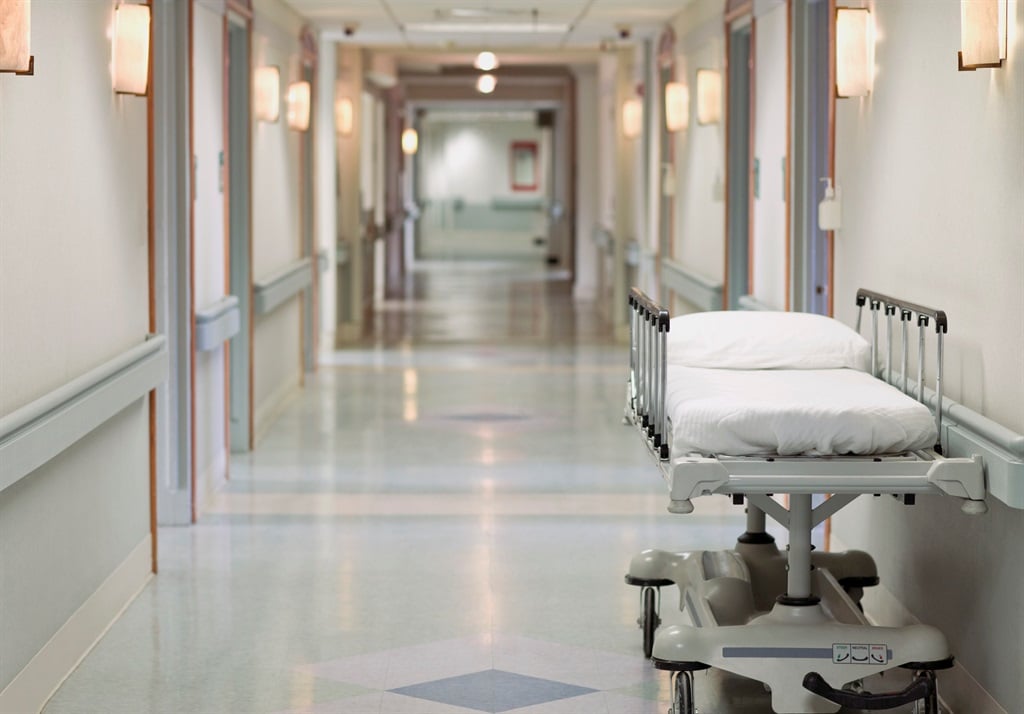
Northern Cape nurses are being stretched beyond their limits by having to care for up to 40 patients each, then clean floors and toilets after hours because the health department has not employed any new cleaners for the past 10 years.
Public health nurses in the province face just about every problem imaginable, says Anthony Vassen, the Northern Cape provincial secretary of the Democratic Nurses Organisation of South Africa (Denosa).
In parts of the world with mandatory nurse-to-patient ratios such as in California in the United States or Victoria in Australia, the highest number of patients a nurse will take care of is between five and eight on a general ward, with one nurse to every one or two patients in emergency, intensive care and maternity departments.
READ: Patients treated in corridors at Helen Joseph Hospital
In the Northern Cape public health system there are so few nurses left that each one looks after between 30 and 40 patients at a time.Because of the dire shortage, Vassen says nurses are regularly asked to work extra hours once their gruelling 12-hour shifts end. They do this to ensure that patients have some level of care but rarely get paid their contracted overtime rate at the end of the month.
Vassen says:
He adds that the department has not hired any new cleaners for 10 years, and brings in expanded public works programme staff to clean, but only until 4pm on weekdays. At night, on weekends and on public holidays, the nurses have to do the cleaning.
Massive shortfall
The union marched on the office of the premier, Zamani Saul, on May 12, giving him until May 28 to commit in writing to solving the grievances that make Northern Cape health facilities a hazardous place for patients – and nurses.
Denosa says the Northern Cape government is hopeless when it comes to planning. According to the union’s Northern Cape membership database, 158 nurses died, retired or left the public health system in 2019, another 107 in 2020, and a further 193 in 2021. These statistics exclude the number of nurses who have exited the profession and belong to other health unions.
READ: Medical staff leave beleaguered Charlotte Maxeke Hospital for greener pastures
Even if these nurses were replaced by the same number of new graduates each year, there would still be a huge experience and skills gap. But the only nurse training college in Northern Cape, Henrietta Stockdale Nursing College in Kimberley, has not taken on any new students for the past three years.
Vassen says:
Although it is the oldest nursing training institution in the country, Henrietta Stockdale could not take on new students because of delays since 2019 in getting accredited to deliver the new national nursing qualifications.
Vassen blames the South African Nursing Council and the Council of Higher Education for the delays, but both councils blame the college.
South African Nursing Council registrar and chief executive Sizo Mchunu says the college submitted its programme late, then had to address concerns the nursing council had with the programmes, and it was eventually able to accredit them only in October 2020 and March 2021.
READ: Health department terminates graduates’ community service contracts
Council of Higher Education spokesperson Ntokozo Bhengu also says it was unable to accredit the college’s diploma in nursing, and had only just received the college’s feedback, which it will now process.
These delays have left the Northern Cape’s public health sector with a “massive” shortfall.
Vassen says:
On the edge of collapse
Denosa says it has raised many more serious concerns over the years with the government. Nurses cannot get time off to study postgraduate degrees in specialised areas such as intensive care, maternity, paediatric, primary health care and casualty nursing. Yet hospitals cannot function without nurse specialists. In many countries, nurses are required to begin their postgraduate education as soon as they start working.
“Most of the time the skills development budget is underspent, which tells you there is money but just no planning. Nine out of 10 nurses in Northern Cape are not trained in a specialised area,” says Vassen.
Impoverished communities who rely on good quality primary healthcare are affected because nurses without postgraduate qualifications are limited in their scope of practice, he adds.
With a total collapse looming, some community health centres have shut down at night and on weekends because there are no nurses to staff those shifts. The Pampierstad and Warrenton community health centres are now open for only eight to 12 hours during weekdays, Vassen says.
At night, sick patients in these communities must find their own way to other hospitals up to 200km away.
“There’s a massive influx from rural areas to our short-staffed 24-hour hospitals, which is a danger to the nurses and the patients. Managers are throwing nurses under the bus for mistakes but the reason is obvious. You cannot expect one nurse to take care of 40 patients and not make mistakes,” Vassen says.
The magnitude of the problem is enormous. Vassen says in smaller hospitals, nurses run between maternity wards, casualty, paediatrics and general wards in a single 12-hour shift. Ordinary practice is for nurses to remain in one area, gaining experience so that they are able to offer better care.
READ: Staff shortages undermine quality of healthcare in Limpopo
Many health facilities outside Kimberley and Upington do not have generators, and if they do, they have no money for diesel.
“But they do not shut during load shedding. The nurse still has to see the patient without using any equipment that requires electricity. Nurses then have to bite the bullet and accept insults from community members,” says Vassen.
Denosa also wants all security guards to be insourced because when health facilities use guards from private companies they are unable to train them to deal appropriately with psychiatric patients or upset family members.
“Can you understand why, many a time, the nurse is traumatised?” Vassen asks.
A global crisis
These issues have been raised with the government for many years but ignored, which gives nurses the impression that they and their patients are being forced to become accustomed to an austere and rundown health system that the government will strip back and downsize more and more.
Saul’s spokesperson Bronwyn Thomas-Abrahams promised to answer New Frame’s questions but never did. Provincial health spokesperson Lebogang Majaha said he would “provide a detailed response shortly after internal consultations have been concluded”.
South African Federation of Trade Unions general secretary Zwelinzima Vavi says austerity policies have “decapacitated the public healthcare system through defunding and budget cuts” across South Africa.
The latest increase of 0.2% to the health budget is so far below the inflation rate that it amounts to a budget cut, he says.
This underfunding, short staffing and lack of equipment and medicines makes: “the nursing profession unbearable, and quite distressing to the nurses, employed and unemployed”, says Vavi.
International Centre on Nurse Migration research released this year found that a lack of nursing staff is a “crisis and an avoidable healthcare disaster”. Globally, there was a shortage of six million nurses at the start of the pandemic but this worsened with a number of nurses dying from the coronavirus.
“With the immense and relentless pressure of responding to Covid-19, the world will need to recruit and retain up to 13 million nurses over the next decade,” says the organisation’s chief executive Howard Catton.
This article was first published by New Frame. Read the original article here.
| ||||||||||||||||||||||||||||||
 |




 Publications
Publications
 Partners
Partners









